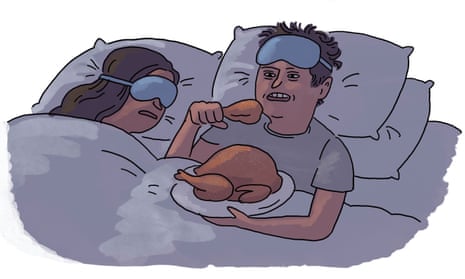What started as curiosity would turn into an emotional investment – and eventually, a lifeline. A few nights ago, my phone lit up with a TikTok notification: “WE’RE PREGNANT”. The message wasn’t from a friend. It was from an Australian couple, complete strangers. But social media knows me well because I felt something sharp and bright – joy and relief – for people I will never meet.
It’s strange to feel deeply for someone you’ve never spoken to, whose life is about as geographically far from yours as possible. But I was thrilled to see this pregnancy announcement, shared with millions, from someone I only knew through a few carefully curated moments. As someone who is fundamentally nosy – I will never not notice a “baby on board” badge or make up backstories for strangers – social media has always offered an irresistible window into other people’s lives.
Just before lockdown, I was housebound with an ankle so fat it looked like an inflated washing-up glove. (I’d fallen – sober, I should add – down every step of Oxford Circus station.) Immobile, bored and lonely, I’d downloaded TikTok. I was first drawn in by the dance videos, then utterly absorbed by more personal, raw content.
What started as curiosity soon became an emotional investment. In five years of TikTok use I’ve witnessed a rise in creators documenting every intimate detail of their trying-to-conceive (TTC) journeys, the content now spilling over on to other platforms. My experience has moved from voyeurism, to research, to deeply personal connection.
If you haven’t seen it, there’s a whole world of TTC influencers filming the kind of private experiences that once happened in low-lit bathrooms, whispered to partners in bed, or shared with close friends. Intimate moments are now monetisable and watched by massive audiences: pregnancy tests held up to the screen, fertility medication syringes clicked and pressed into stomachs, euphoric “live reaction” videos and heartbreaking silences.
It’s a very modern phenomenon and one that feels especially timely considering the fertility rate in England and Wales has dropped to its lowest since records began in 1938. For some reason, we all accepted that you shouldn’t talk about wanting children outside the closest circles, let alone discuss the emotional toll of trying to have them. Social media is breaking that, creating virtual communities with unprecedented levels of instant support.
Two things happened back in 2020: TikTok pushed me into increasingly niche corners, from TTC to alternative birthing stories, and lockdown meant I had far more time to read all the articles I’d previously bookmarked. That’s how I discovered freebirthing, the term used to describe a pregnancy and birth without any medical interventions. No scans, no drugs, no healthcare professionals. I read the harrowing account of one mother who was certain she should avoid doctors even as she approached 45 weeks, only for her child to pass in utero. Her reflection on the influence of online groups haunted me.
I was 28, vaguely thinking about starting a family someday, and freebirthing seemed so radical and challenging. I couldn’t stop asking myself: why would someone leave the safety net of medicine? What made that mother so certain, so trusting of these online voices? Those questions became the foundation of my debut novel.
Back in 2020, my job involved running social media campaigns for a literacy charity. My research led me to private freebirthing groups, so my Facebook feed swung between virtual nursery rhyme events and graphic freebirth videos – blood, viscera and fragile life pulsing through bathtubs and mattresses. Once my algorithm learned I was interested, it pushed the content even more, across all social platforms.
I was taken by the language used: ancestral births, sacred mothers, the divinity of a fully autonomous and wild pregnancy. My protagonist, Claire, emerged from this research but, unlike me, she had experienced medical trauma leading to deep mistrust of healthcare professionals, making freebirthing her chosen path. Through her story, I tried to approach the subject with curiosity rather than judgment.
Dr Zeynep Gurtin, a medical sociologist at UCL who is setting up the largest international study in freebirthing, explains there are a “huge number of reasons” why someone freebirths. This includes cultural contexts of seeing physiological births at home, past successful intervention-free births, and a response to the NHS’s reported institutional racism and bias. Gurtin says, “Medicalisation of pregnancy and birth necessitates viewing these events as pathologies, and it’s understandable that some people are now saying, ‘That doesn’t serve me, and it doesn’t respect my autonomy’.”.
In the years since I started my book, Baby Teeth, freebirthing is thought to have increased, though there are no definitive records. Dr Shree Datta, consultant obstetrician and gynaecologist at the Portland Hospital and NHS Homerton Trust, says, “It’s estimated that a very small proportion of births, likely less than 1%, occur outside a medical or midwifery setting, including freebirths.” She notes, “The NHS does not formally recommend freebirth, but we respect a woman’s right to make decisions about her birth.”.































